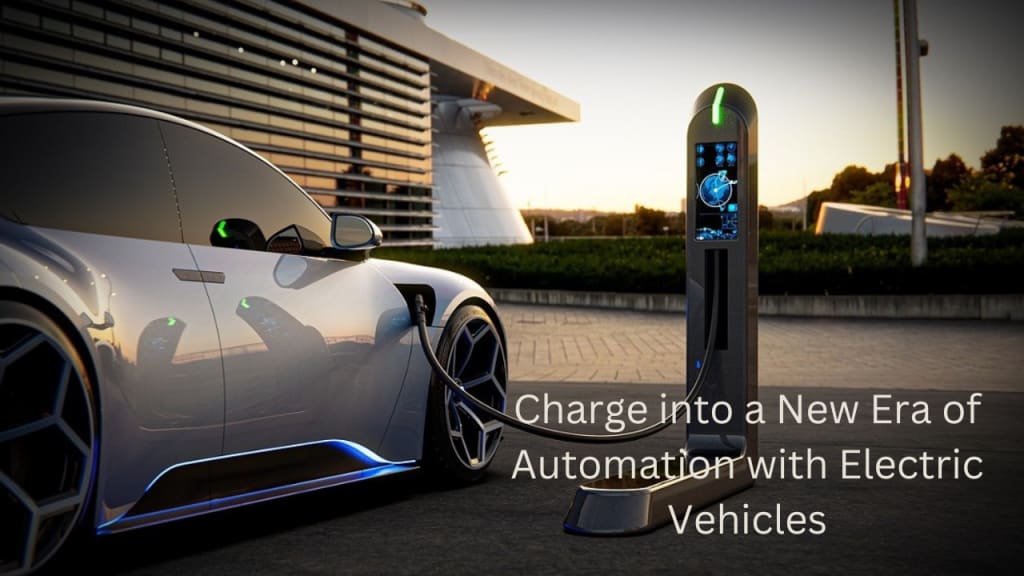Charge into a New Era of Automation with Electric Vehicles
Electric Vehicles

The world is changing day by day and has seen modernization in a short span of time. From modernization in warfare weapons to advancement in the health sector the world is making progress day by day. Each sector gets hit by this modernization and so is the automation industry. From diesel engines to gasoline engines with improved efficiency is seen by the world. Now it's the time to witness a new technology that will dominate the world with zero carbon neutrality. In the race for a cleaner, more automated transportation future, electric cars or EVs have proven to be a formidable competitor. The fusion of automated driving and electric vehicles holds the potential to transform society.
EVs a Way to Zero Carbon Neutrality:
New cars in Canada all come up with this advancement to nullify the effects of carbon emissions. A dedication to lowering carbon emissions and lessening the effects of climate change is at the core of the EV revolution. Traditional internal combustion engines produce large amounts of greenhouse gas emissions and air pollution. Electric cars have no tailpipe emissions, providing a practical way to fight smog in cities and lessen reliance on fossil fuels.
By utilizing renewable energy sources, such as solar and wind power, to charge these vehicles. The switch to EVs promotes a more sustainable ecosystem. The symbiotic relationship between electric cars and clean energy is perfectly in line with the global agenda.
Efficiency and Convenience:
EVs have shown rapid growth in the market on the basis of the zero carbon emission property but the next question that comes to mind of a buyer. Only on the basis of the zero carbon emission policy does he have to buy an EV What about its efficiency and Convenience? Imagine an electric car that not only charges itself but also adjusts how much energy it uses based on the traffic and battery levels in real-time. Adaptive cruise control, predictive maintenance, and self-parking are a few examples of how automation can improve the effectiveness of EVs.
Modern electric vehicles (EVs) with advanced batteries can now match or even outperform conventional internal combustion engine vehicles. While the precise distance traveled on a single charge can vary depending on the vehicle model, battery size, road conditions, and weather. Many modern EVs offer ranges of more than 200 miles (320 kilometers) on a single charge.
Some electric cars can travel more than 300 miles (480 kilometers). Which qualifies them for long-distance trips without frequent recharging. The growing acceptance and adoption of electric vehicles as viable substitutes for conventional cars.
Revolution in Urban Transportation:
Cars have witnessed a new revolution which you see in Canada as well as in other parts of the world. The fusion of electric cars and automation presents a compelling solution. Electric shared-used cars like that of the Mercedes-Benz Canada have the potential to completely alter how we think about urban transportation. Think about a time when self-driving electric vehicle fleets are seamlessly incorporated into a city's transportation system.
Future and Advancement in EVs:
To build a new transportation ecosystem, a number of automakers and tech firms are actively working on autonomous technology. One of the leaders in this field, Tesla, has been giving its electric cars a comprehensive set of "Autopilot" driver-assist features. On highways, this system enables automatic lane changes, adaptive cruise control, and automated lane-keeping. In addition, businesses like Alphabet Inc.'s Waymo, a division of Google's parent company, are putting fleets of self-driving cars. The combination of automation and electric mobility supports broader sustainability objectives by lowering greenhouse gas emissions.
Another advancement in EVs leads to AVs also known as self-driving cars. Autonomous vehicles are autos that can navigate and make decisions on their own thanks to sophisticated sensors, and artificial intelligence systems. Autonomous vehicles with electric propulsion have the potential to be safer, more effective, and environmentally friendly than conventional vehicles. Due to their electric drivetrains, EVs offer a special advantage in the development of autonomous technology. Electric motors' immediate torque delivery, fine-grained control, and quieter operation lay a solid foundation for the challenging task of self-driving. Electric vehicles are a perfect testing and development environment for autonomous systems. Because of their exceptional precision in steering, braking, and acceleration.





Comments
There are no comments for this story
Be the first to respond and start the conversation.